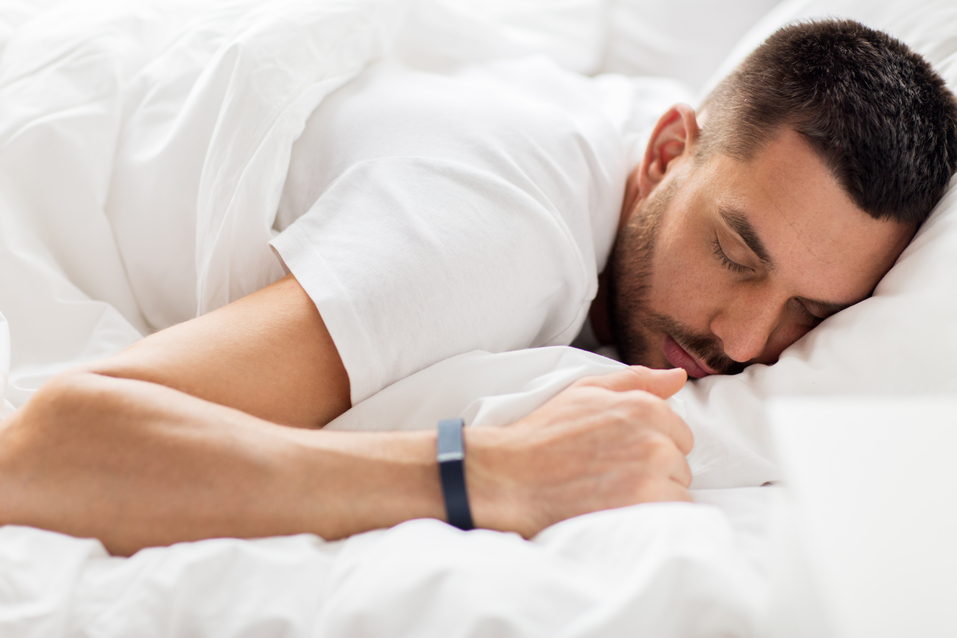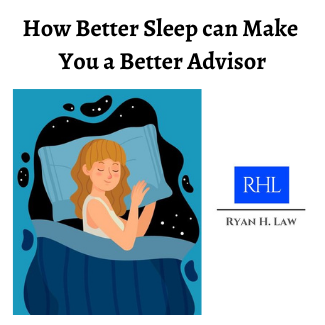by Ryan H. Law
I have an epic battle with sleep. I often work from home, and we have five kids at home during the summer. The older ones do a great job of letting me work, but my 4-year old likes to pop into the office regularly. I’m sure I’ll miss it when he doesn’t do it anymore, but it can be hard to dig in and focus.

Night is the quietest time for me – everyone is asleep except me. I can write, read, grade, etc. with no interruptions. There’s no email coming in, and no calls or texts coming in.
Unfortunately, I have created a habit of staying up until about 2 AM. If I’m being honest with myself, though, they aren’t really productive working hours. I tend to leave the TV on and don’t really get a lot done.
Another challenge is that I like to get up no later than 7 AM so I can go for a run before it gets too hot. 2-7 AM is not enough sleep, so I either sleep in and don’t get to work until noon, or I am in a fog all day. Neither are good options. I do fairly well on 7 hours of sleep, but 8 is ideal.
Research on the importance of good sleep has been prolific over the past few years. I’ll link to several studies/articles at the end of this post.

We have a good idea about the negative health effects of not getting enough sleep including:
- Makes learning more difficult
- Serious health issues, including increased risk for heart attacks, stroke, diabetes, high blood pressure, and early death
- Faster aging
- More forgetful
- Weight gain
- Weakened immunity
Getting 7-8 hours of sleep a night has been found to:
- Improve heart health
- Reduce stress
- Reduce inflammation
- Increase energy and alertness
- Improve memory
- Increase productivity
- Improve learning
We also have great research available about how to get better sleep including:
- Prioritizing sleep
- Set your internal clock by sticking to a consistent schedule
- Avoid screens for at least an hour before bedtime
- Stop caffeine no later than noon
- Keep all artificial light out
- Keep the temperature low – between 60-68°F (15-20°C)

I have known about the negative health aspects of not getting enough sleep, and the tips to getting a better night sleep, but I still struggle with it. I’m ready to make a change, and to help improve chances of success, I’m starting small. Awareness is the first step – being honest about when I go to bed, when I get up, when I get tired, and my level of productivity. After analyzing my sleep and gaining awareness, I’m ready to make some changes. Here are the small steps I am committing to taking:
- Shut off iPhone and iPad no later than 11 PM
- Close the house down at 11 PM (start the dishwasher, make sure lights are out, etc.)
- Go to sleep no later than 12 PM
- Get up at 7 AM
- Exercise and get ready for the day by 9 AM
- Be in my office working by 9 AM
I would like to shift all of this to about an hour earlier, but this is a good first step for me.
The 3-Legged Stool of Health

Health is a 3-legged stool: exercise, diet, and sleep. I’m doing fairly well on both exercise and diet, and now my next focus is sleep. I know that focusing on sleep will make me a better teacher, spouse, parent, mentor, and advisor.
I’m confident it will do the same for you.
As with any health advice, I’m not your doctor. I’m simply sharing what works for me and what I’m focusing on. Be sure to talk to your health-care provider before making any major changes.
ACTION STEP
How is your sleep? Are you getting the recommended 7-8 hours each night? If not, your action step is to increase your awareness. Keep a sleep journal for the next few days.

REFERENCES AND RESOURCES
The Effects of Sleep Deprivation on Your Body
Here’s What Happens When You Don’t Get Enough Sleep (And How Much You Really Need a Night)
Twelve Simple Tips to Improve Your Sleep
10 Benefits of a Good Night’s Sleep
Surprising Reasons to Get More Sleep
Images in this post are licensed by Ingram Image – Stock Photo Secrets (AFF)


Leave a Reply